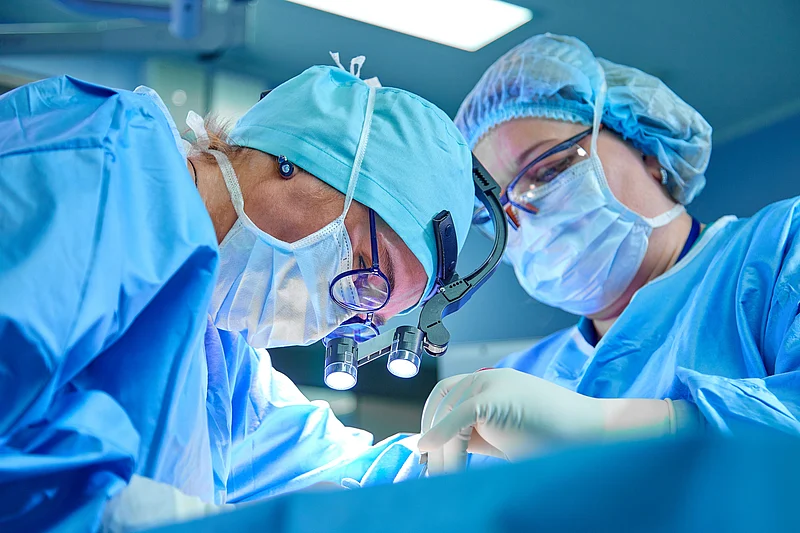Get Healthy!

- Dennis Thompson
- Posted July 3, 2023
Taking Ozempic, Wegovy? Stop Before Surgery, Anesthesiologists Say
The trendy weight-loss drug Ozempic could be dangerous for a patient undergoing anesthesia for an operation, according to a new warning from the American Society of Anesthesiologists.
Semaglutide (Ozempic, Wegovy) and other drugs of their class known as GLP-1 receptor agonists cause digestion to slow down, which decreases hunger and reduces how much people eat.
That food left in the stomach increases the risk you will vomit while under anesthesia, said ASA President Dr. Michael Champeau.
"We've had reports of people vomiting immediately preoperatively when there shouldn't be any food in their stomach,"Champeau said. "As soon as we started hearing anecdotal reports and case reports, the mind immediately goes to how the drug works and what it does."
The ASA is recommending that people on a GLP-1 agonist like Ozempic stop taking it prior to surgery.
If you take such a drug once a day, you should not take your daily dose the morning of surgery, Champeau said.
If you take the drug once a week, you should hold off on your dose until after surgery.
"If you take it every Sunday and you're having surgery on a Wednesday, you can't take it the Sunday before the surgery,"Champeau said. "You've got to stop it at least a week in advance, if you're taking the once-a-week dose."
There's a reason patients are told to not eat the night before surgery, and it's the same reason they need to hold off on Ozempic.
"When anesthesia was first discovered back in the 1840s, nobody knew about this and it happened a lot. You'd be putting someone to sleep with ether and they would vomit and they would suck it in their lungs and they would have a terrible, terrible pneumonia or die,"Champeau said. "And so it became clear very early to us that this is a major complication of anesthesia and we have to find ways of reducing the likelihood of that as best we can."
That's why anesthesiologists are such sticklers for how long patients need to fast prior to surgery.
"We annoy people all the time. We annoy patients and we annoy surgeons, when a patient doesn't follow the guidance that they're given and they have a sandwich or toast or an egg or whatever on the morning of their surgery and then show up," Champeau said. "We basically will not do the surgery at that point, and make people wait the prescribed amount of time."
GLP-1 agonists like Ozempic were originally developed to treat people with diabetes. They mimic a hormone called GLP-1 that prompts the pancreas to produce more insulin after meals, according to Johns Hopkins Medicine.
But they also keep food in the stomach longer so patients feel full sooner when eating, and they suppress the appetite -- the reasons why Ozempic has become renowned for aiding in weight loss.
Other GLP-1 agonists include dulaglutide (Trulicity), exenatide (Byetta), liraglutide (Victoza) and lixisenatide (Adlyxin), according to Johns Hopkins.
Patients can resume taking their GLP-1 agonist the next day after surgery, Champeau said.
Those taking the drugs to control diabetes might need to briefly switch to another drug, he added.
"They're going to need to go to whichever doctor is managing their diabetes because they're going to need to change to another antidiabetic therapy to keep their diabetes under control during those days that they're not getting their Ozempic,"Champeau said.
More information
Johns Hopkins Medicine has more about GLP-1 agonists.
SOURCES: Michael Champeau, MD, president, American Society of Anesthesiologists; American Society of Anesthesiologists, news release, June 29, 2023

